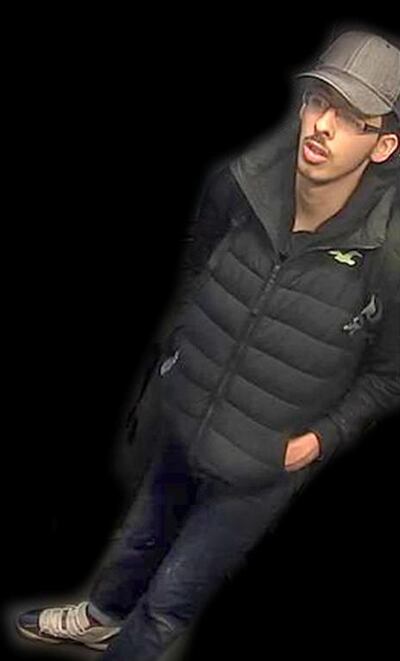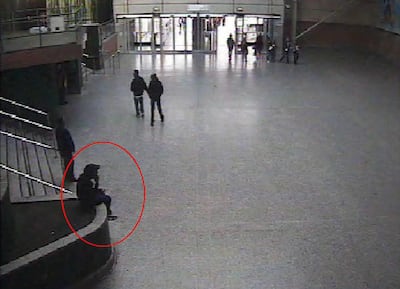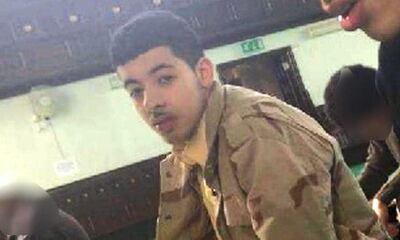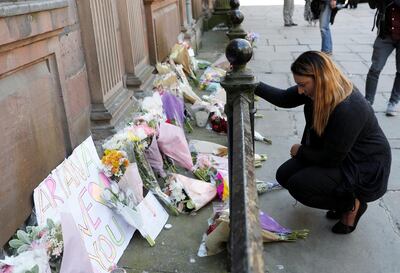A report into the Manchester Arena terror attack, in which 22 people died, reveals the atrocity should have been prevented.
The inquiry found that the security services should have been able to prevent Salman Abedi detonating a bomb in the foyer of the arena killing 22 people and injuring hundreds of others.
In the first of three reports into the 2017 suicide bombing at the end of an Ariana Grande concert, the security services have been heavily criticised for failing to stop ISIS terrorist Salman Abedi.
In the 204-page report published on Thursday, chairman of the Manchester Arena Inquiry, Sir John Saunders, says lives could have been saved.
He has made nine recommendations in a bid to prevent future attacks.
“The security arrangements for the Manchester Arena should have prevented or minimised the devastating impact of the attack,” he said.
“They failed to do so. There were a number of opportunities that were missed leading to this failure. Salman Abedi should have been identified as a threat by those responsible for the security of the arena and a disruptive intervention undertaken.
“Had that occurred, I consider it likely that Abedi would still have detonated his device, but the loss of life and injury is highly likely to have been less.”
Sir John said British Transport Police, who were responsible for policing the area, and Arena operators SMG and its contracted event security providers Showsec are all “principally responsible” for missed opportunities leading to the atrocity.
Had any of them challenged Abedi prior to the end of the concert it is possible only one life may have been lost instead of 22, the report reveals.
“An approach by a police officer may have caused Abedi to leave the City Room, or he may have detonated his device,” Sir John said.
“In either case, it is likely that fewer people would have been killed.”
The report accuses the police officers of “ignoring” orders to properly police the event by staggering their breaks thus allowing Abedi to slip by unnoticed.
Showsec employee Mohammed Agha, who had spotted Abedi when he was first in the complex due to admiring his trainers, has been criticised for not identifying him as suspicious when he returned to the venue on a second occasion on the night of the attack.

“Had Mr Agha been adequately trained, this would have caused him to draw Abedi to his supervisor’s attention,” the report says.
“This in turn would have brought into sharp focus that Abedi had chosen to position himself out of sight of the cameras.
"This was a missed opportunity. Had Abedi been spoken to at this stage he may have been deterred. He may have detonated his device. He may have left the City Room for a period, before attempting to return later. None of these possibilities is likely to have resulted in the devastation of the magnitude caused by Abedi at 22.31pm.”
The report revealed Abedi had carried out repeated reconnaissance at the venue, the first four days before the attack on May 18 – the same day he flew back to the UK from Libya.
On the night of the incident he spent more than hour throughout the concert in a CCTV blind spot, Sir John says had the cameras captured that area it would have become apparent his presence was “significant”.
Despite a member of the public reporting Abedi’s “suspicious” behaviour to Showsec staff no action was taken.
The report reveals in the half an hour before the explosion and the end of the concert no police officers or security staff patrolled the foyer.
“The fact that Abedi was noticed by members of the public supports the conclusion that a vigilant police officer would have identified him as suspicious had they seen him,” Sir John said.
“I am satisfied there were a number of missed opportunities to alter the course of what happened that night. More should have been done.”
He has made a number of recommendations, including that every venue has a risk assessment for the threat of a terror attack, robust procedures, such as patrolling the venues, should be in place, those providing security should be informed of the terror threat level - which at the time was severe - and all reports of suspicious behaviour should be acted on.

Sir John said employees should also be given first aid training to deal with injuries which could be caused by a terror attack and the government should introduce a 'rigorous' Protect Duty to make it a legal requirement for large venues and public spaces to protect themselves against terrorists.
“It should be understood that I intend to scrutinise what has been done in response and use all the powers available to me, if required, to achieve transparency and accountability,” he said.
"I have concluded that there were serious shortcomings in the security provided.I was urged by everybody to avoid looking for scapegoats. I have not looked to blame anyone but where, having considered the evidence, I considered that individuals have fallen below a proper standard in carrying out their important roles in protecting concert goers I have said so."
Two future reports examining the emergency response to the attack and whether the security services could have prevented it are due to be published in the future.
The Manchester Arena Inquiry, which was established by UK Home Secretary Priti Patel in 2019, is continuing to hear evidence examining the circumstances of the attack and whether any opportunities to prevent it were missed.
Suicide bomber Abedi, 22, died after detonating the rucksack bomb.
His younger brother, Hashem Abedi, was convicted last year on 22 counts of murder, one count of attempted murder and one count of conspiracy to cause an explosion.
He was sentenced to jail for a minimum of 55 years.





